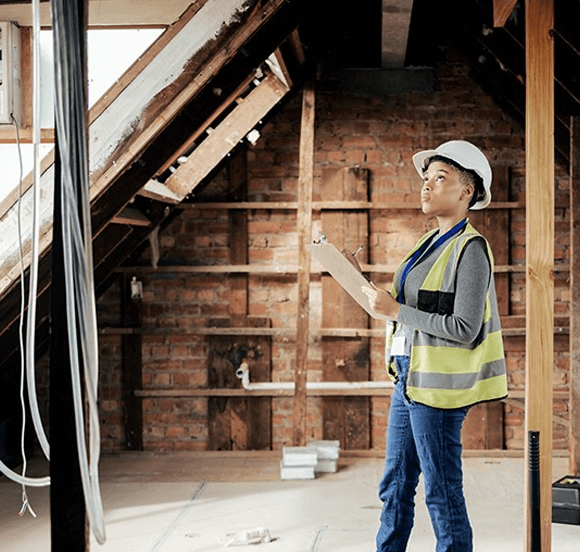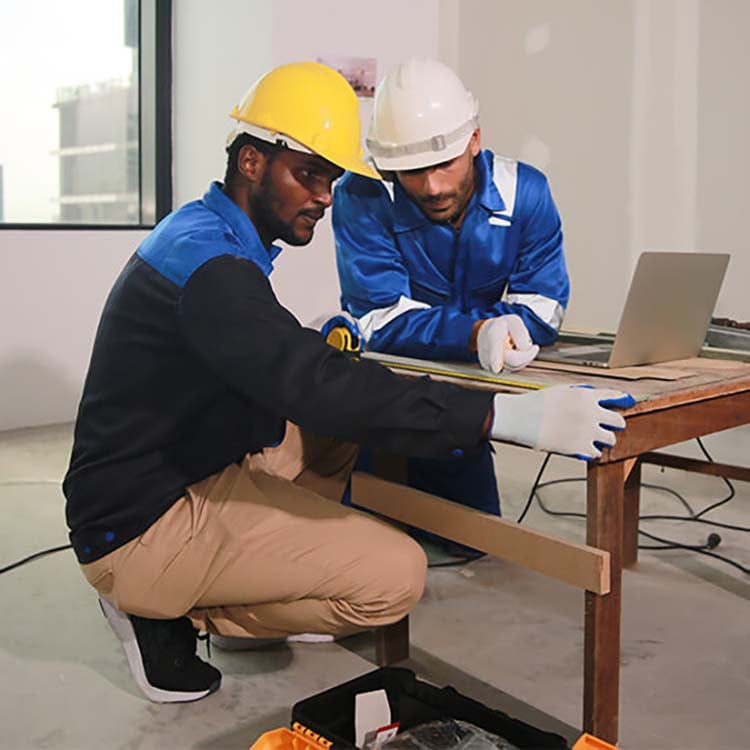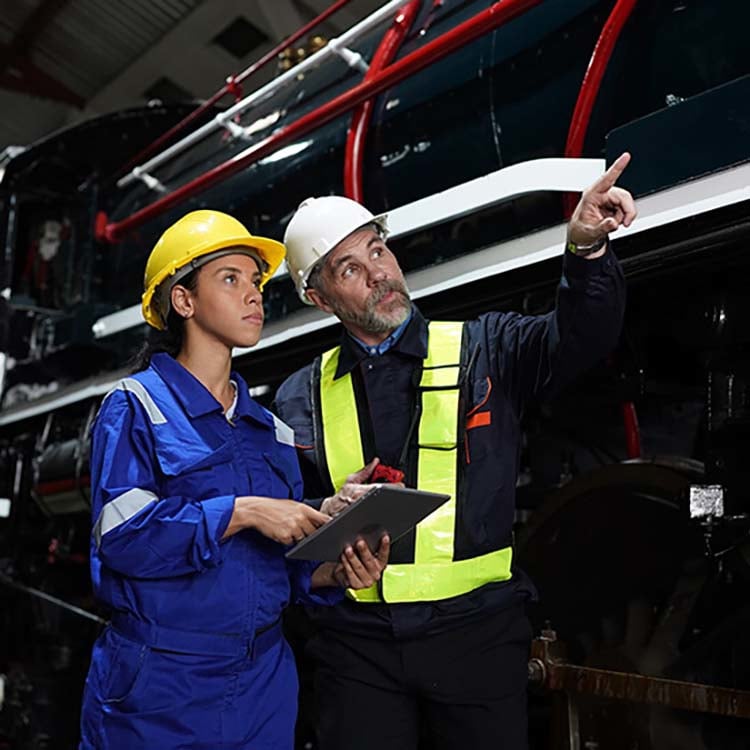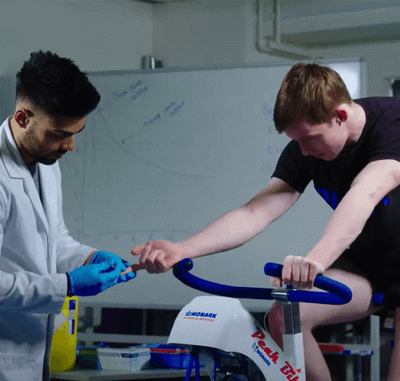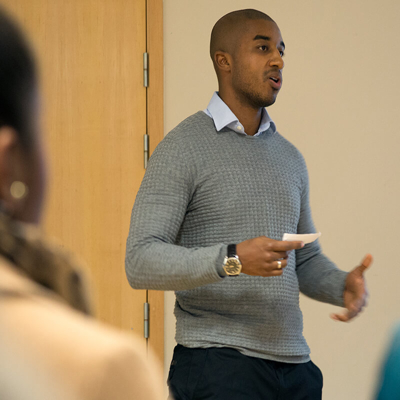/ Undergraduate /
Start date:
September 2024
BEng: 112 UCAS points (or equivalent)
MEng: 120 UCAS points (or equivalent)
Foundation Year entry: 64 UCAS points (or equivalent)
UCAS code:
H200 (BEng)
H201 (if choosing foundation year)
H202 (MEng)
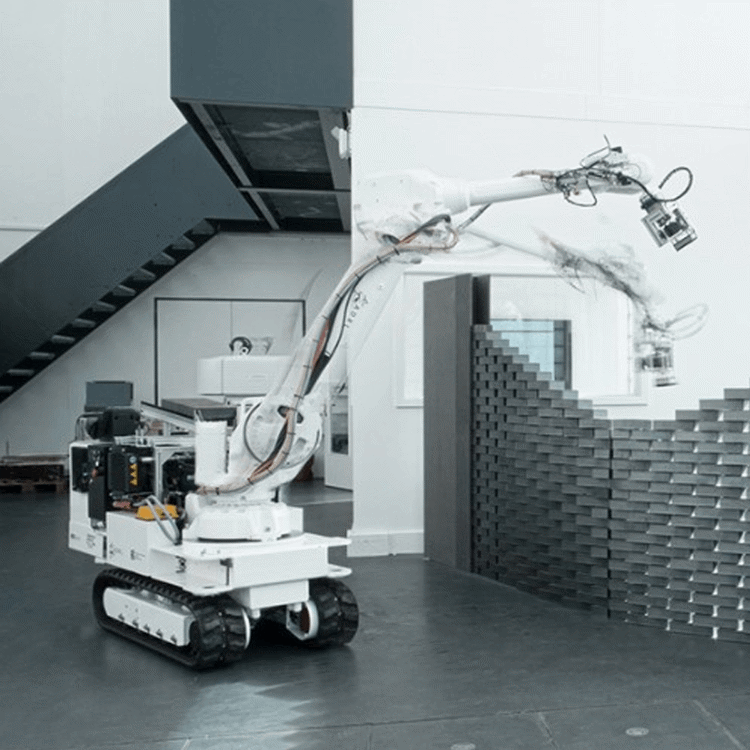
Unlock your potential in Civil Engineering at the University of Roehampton. Our Civil Engineering programmes offer a comprehensive education in structural, environmental, and transportation engineering, with a focus on sustainability and innovation. Join us to build a rewarding career in shaping the world's infrastructure and addressing critical global challenges.
Did you know?
Our programmes are designed to address global skills needs, as well as the needs of national and regional employers, and meet the standards of professional bodies.
This course is also available with a foundation year (September entry only)
Find out more about our Foundation Year
Foundation Scholarship available (home students enrolling on degrees with foundation years)
Modules
These modules are those we currently offer for 1 year (full-time).
- Mathematics and statistics: This module focuses on the development of conceptual understanding of the physical world, including engineering artefacts and natural environmental processes, through mathematics. It aims to strengthen and extend students' understanding of core mathematical concepts used in the solution of engineering problems and in the analysis of data.
- Engineering principles: Here you will get an introduction to the foundational principles of statics and dynamics. It explores the different types of stresses that materials undergo and how these materials respond under the influence of such stresses. The module extends its focus to statically determinate structures, and their behaviour under various stress conditions.
- Civil engineering materials and soils: The primary objective of this module is to provide students with a comprehensive understanding of the materials used in civil engineering and construction. The emphasis is on knowledge and understanding of embodied carbon in materials, and environmental and sustainable considerations relating to their source, manufacture, use and disposal.
- Surveying and drawing: Here you will gain skills centred around surveying, setting out, data analysis and drawing. The module encompasses both manual and digital aspects of surveying, providing a comprehensive
skill set for aspiring professionals in civil engineering and related fields. - Interdisciplinary Design Project 1: You will begin to develop skills in design through a series of design tasks that require the development of a range of options to solve a design problem. You will introduce the ways that
professionals work collaboratively in design.
These modules are those we currently offer for 1 year (full-time).
- Architectural engineering systems: The aim of this module is for the student to understand the principles of thermodynamics, sustainable building management, natural ventilation methods, and renewable energy generation. The module will equip you with the fundamental knowledge and skills required to analyse, design, and integrate various sustainable practices into building management.
- Structural analysis and design: Here you will learn about structural design processes in concrete, masonry, timber, and steel, emphasizing elastic structural analysis methods and virtual forces. Students gain proficiency in analysing elastic indeterminate structures and understanding loadings
and structural stability. The module links to Interdisciplinary Design Project 2, enabling students to apply theoretical and analytical skills in a real-world context. - Soil mechanics: Student will explore the soil mechanics and its applications in Civil Engineering. The module covers the fundamental principles governing soil behaviour, site investigation methodologies, and the laboratory testing of soils.
- Fluid Mechanics: This module covers the principles governing the behaviour of fluids and their applications in engineering. It introduces students to fluid statics and dynamics, the equations that govern fluid flow and the design of open channels and pipe, and hydraulic machines.
- Interdisciplinary Design Project 2: The project will cover a multi-faceted design problem of a building or part of one. You will develop holistic design thinking, further embed approaches that are sustainable and carbon neutral, continue with self-reflection and collaborative practices with other disciplines.
This course offers all students the option of a one-year paid work placement, to boost your employability even further. If you choose this route, you will take the placement following year two of your course, and then return to complete your degree.
Why take a placement?
A placement year is the perfect opportunity to gain valuable work experience, to build on the career skills we will teach you on this degree. The connections you make on the placement will improve your career prospects further, and equip you with the skills you need to secure graduate-level employment.
How we support you
The University's Placement and Work Experience Team are experts at helping you to secure a placement. They will work closely with you from the start, helping you research potential employers, discover placement opportunities, create and pitch your CV, and will coach you to perform well in interviews. We aren't able to guarantee a placement, but our sector-leading advisors will give you the best possible chance of securing one.
Find out more about how we'll support you
We understand that your plans might change once you start your programme. If you decide not to do a placement, you will have the option of completing the three year version of your programme.
Whatever your choice, you will have access to many opportunities for work experience through our Placement and Work Experience Team, and access to face-to-face and 24/7 online careers support.
These modules are those we currently offer for 1 year (full-time).
- Further structural analysis: This module is a specialised exploration into advanced structural analysis techniques. The primary aim is to gain the necessary knowledge, understanding, and skills to analyse and solve complex problems around multi-variable structural systems. This includes an in-depth focus on both statically determinate and indeterminate structures, with an extended emphasis on the analysis of plates.
- Geotechnical engineering design: Here you will focus on design processes for foundations, retaining walls, and slopes. You will gain in-depth knowledge and skills essential for designing resilient, effective and stable support systems within the broader context of civil engineering projects. This module builds upon knowledge acquired in earlier modules: Structural Analysis and Design, and Geotechnics.
- Transport and water infrastructure design: You will focus on the theoretical foundations of highway and railway geometric design and construction. The emphasis is on providing for sustainable travel. It is designed to give students the knowledge and skills required to design transport alignments including horizontal and vertical geometry.
- Investigative project: This project is an individual investigative project on a matter connected with civil engineering chosen by the student. It should in some way relate to or encompass, matters connected with the climate crisis and/or UN Sustainable Development Goals.
- Interdisciplinary Design Project 3: Here you will further develop the skills to design larger more complex scale-built environment artefacts for a specific development site. The project will require research about the background to the site, and developments in construction practices and techniques.
These modules are those we currently offer for 1 year (full-time) for the MEng programme only.
- Construction project management: The aim of this module is to provide understanding and knowledge of all stages of the construction management processes from project inception to finish. It will cover an understanding and knowledge base around principles, theories, and practical applications of project management in the construction industry.
- Structural dynamics and earthquake engineering: Students will develop a deep understanding of vibration phenomena in structures, skills in employing theoretical and computational methods to predict and evaluate the dynamic response of structures, and skills in seismic analysis and design codes.
- Advanced materials: The module offers an in-depth exploration into the advanced behaviours of materials. The student will develop an in-depth understanding of material innovations and will be introduced to methods for assessing embodied carbon and sustainability in the context of materials choice.
- Geotechnical and geo-environmental engineering: Here you will learn about the potential and limits of geotechnical models. You will develop a deep understanding of soil stress and strain modelling, enhance skills in
numerical methods, and extract valuable lessons from geotechnical engineering failures. This module further extends to encompass geo-environmental engineering, considering the interaction between geotechnical processes and the environment. - Interdisciplinary Design Project 4: Students will work in groups and individually to produce a design solution for a design brief, around issues in connection with sustainability, ethics and equality, diversity and inclusion. The engineering problem allocated to each group will be selected to allow collaborative working across different civil engineering disciplines and beyond that to different construction disciplines.
This course is offered as a degree with foundation year – a four-year programme which provides an additional foundation year at the beginning of the degree, that will give you academic and practical experience, as well as the skills you need to ensure you are equipped to successfully complete your chosen degree.
£2,000 Foundation Scholarships for all home students
Find out more about our degrees with a foundation year
Foundation programme delivered by the School of Continuing Education. The exact modules for our foundation programme are currently in development. For more information, please contact us.

Skills
Graduate with an advanced set of skills and professional expertise, ready for industry.
- Our curriculum is guided by our industrial advisory panel, so you’ll graduate with the precise knowledge and skills needed for immediate success in practice.
- Benefit from our local employer partnerships so you can engage with industry professionals.
- Learn to use the latest technology for land surveying, heavy engineering testing, model fabrication, and environmental and digital engineering.
Throughout your time at Roehampton, you’ll develop your technical expertise, problem-solving, communication, and leadership skills. You will graduate ready to excel in the dynamic field of civil engineering upon completing our BEng/MEng degrees.
Learning
Our dynamic approach to learning will prepare you for the real-world of civil engineering.
- Learn alongside other sustainable engineering and technology students just like you will as a professional.
- Project-based learning will give you the practical experience of working as a Civil Engineer.
- Formal and interactive lectures and workshops to ensure you graduate with the technical expertise you need.
Sustainability is central to Civil Engineering and will be embedded in everything you learn, with a particular emphasis on good health and well-being, clean water and sanitation, affordable and clean energy, and sustainable cities, and communities.
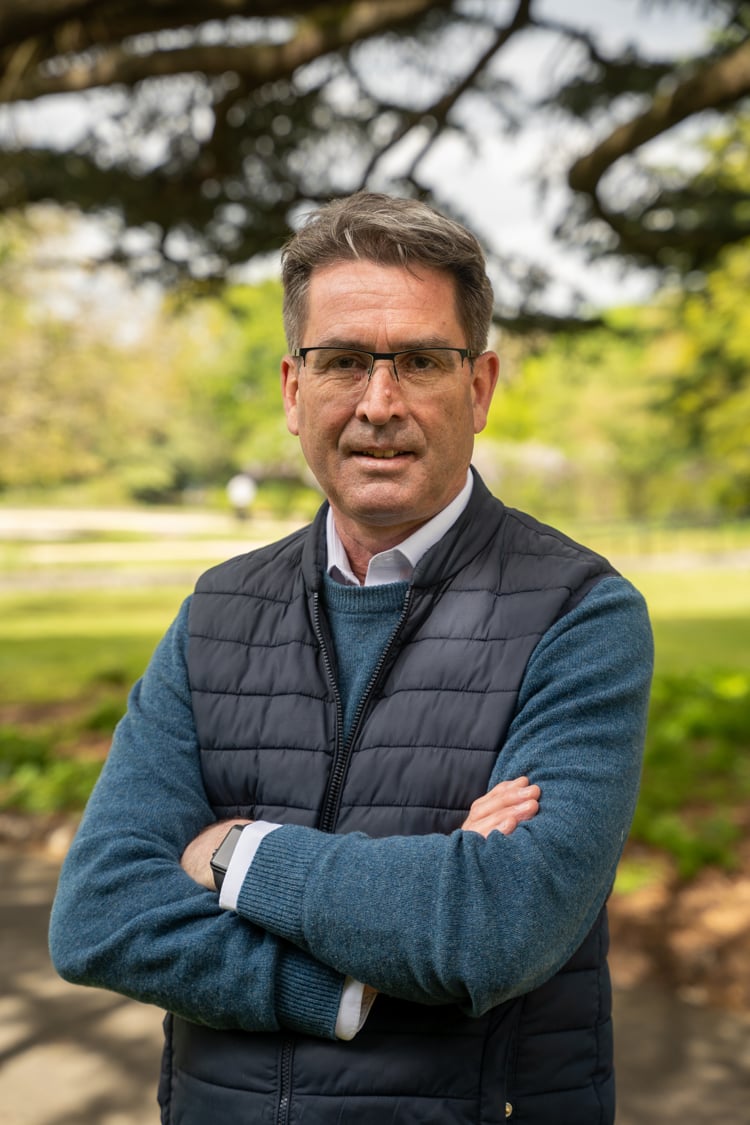
Professor Stephen Pretlove
Hello, I am Stephen Pretlove, Director of Sustainable Engineering, and I have been at Roehampton since July 2023. I have an educational background in construction, engineering, architecture and environmental design, and I have worked as an academic for over 30 years in a number of large built environment departments across the UK.
My role at Roehampton is to lead on the development of our new sustainable engineering and technology centre, and to establish and deliver a suite of innovative engineering and built environment programmes, focusing on sustainability, green skills, and meeting the zero carbon targets set by the UK government.
My research focuses on sustainability in the built environment, and the need to take a holistic approach to how buildings are designed, how they are constructed, and how they are occupied. Failure in any of these areas results in buildings that are not sustainable and much of my work involves Post Occupancy Evaluation (POE) of buildings, particularly social housing, to evaluate how a building performs in relation to the design intentions.
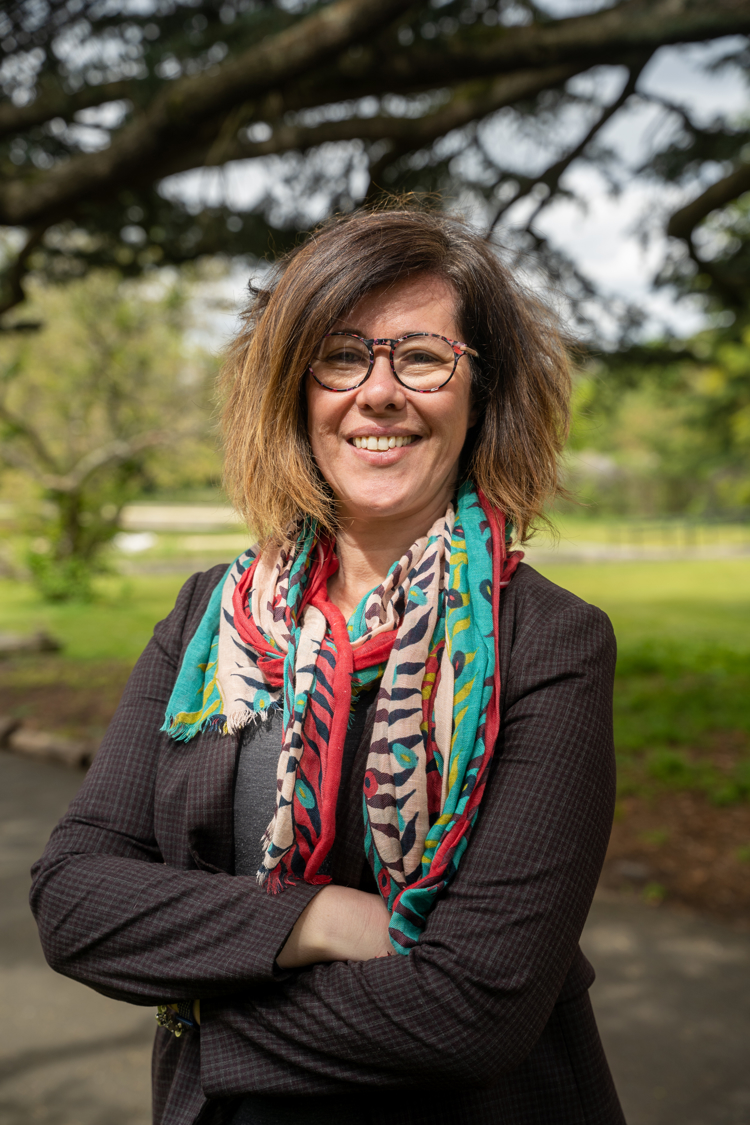
Lilian Martins da Silva
Senior Lecturer in Architectural Technology.

Well-being Pawfficer

Assessment
You’ll be set authentic assessments, meaning that your projects, tasks and exercises will replicate the working world of civil engineering.
This could include:
- Technical reports
- Lab reports
- Essays and presentations
Between Years 2 and 3, you can also opt for a professional placement year, meaning you have the opportunity to apply for a placement and gain valuable real-world experience.
Career
You’ll graduate with a huge range of opportunities in the built environment sector.
In London and around the UK there are Civil Engineering employers who offer opportunities in areas of design, consultancy, structures, railways, coastal, transport, water and infrastructure.
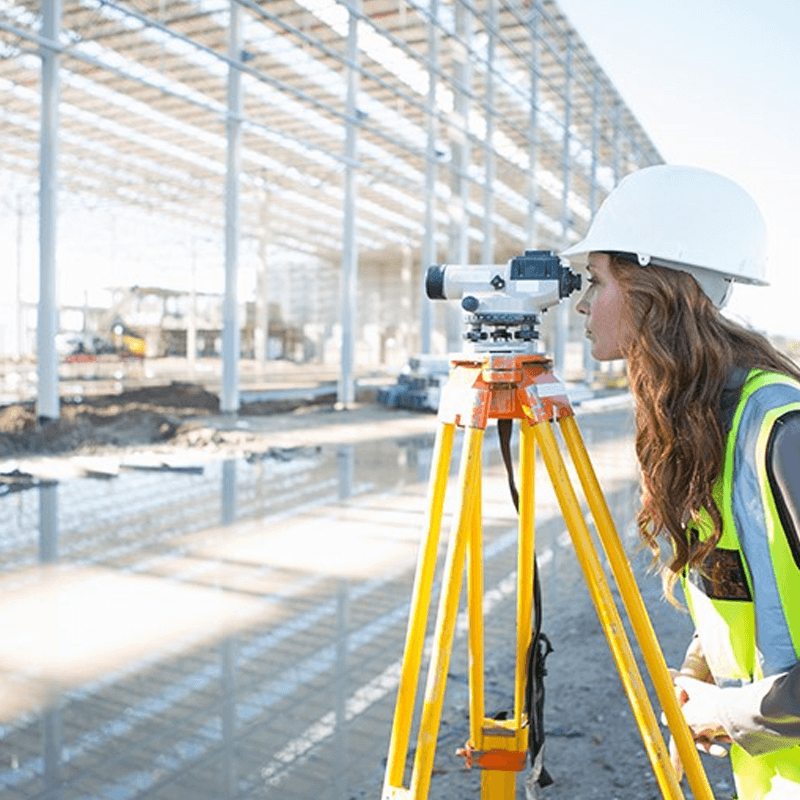
Open days
Get a real taste of our campus, community and what it’s like to study at Roehampton
Applying
Full-time UK undergraduate students apply through UCAS.
Entry tariff
BEng: 112 UCAS points (or equivalent)
MEng: 120 UCAS points (or equivalent)
Foundation Year entry: 64 UCAS points (or equivalent)
We welcome applications from students studying T Levels.
For all courses we also accept a wide range of other qualifications and experience. Contact us to find out more.
When we consider applications to study with us, we form a complete view of your achievements to date, and future potential, and can offer flexibility in entry requirements. Find out more about our Contextual Offer scheme.
Specific entry requirements
GCSE requirement: Maths and English, Grade 4/C.
A level (or equivalent): Maths, Grade C.
General entry requirements
September 2024 entry tuition fees
Year one fees
UK: £9,250
Placement year: £998
We offer a wide range of scholarships and bursaries. See our 2024 financial support pages for UK students.
We also provide other ways to support the cost of living, including free buses and on-campus car parking, hardship support and some of the most affordable student accommodation and catering in London. Find out more about how we can support you.
International undergraduate students apply through our direct application system.
Entry tariff
We welcome applications from students studying T Levels.
For all courses we also accept a wide range of other qualifications and experience. Contact us to find out more.
When we consider applications to study with us, we form a complete view of your achievements to date, and future potential, and can offer flexibility in entry requirements. Find out more about our Contextual Offer scheme.
General entry requirements
September 2024 entry tuition fees
Year one fees
EU and International: £15,750
Placement year: £998
We offer a wide range of scholarships and bursaries. See our 2024 financial support pages for international students.
We also provide other ways to support the cost of living, including free buses and on-campus car parking, hardship support and some of the most affordable student accommodation and catering in London. Find out more about how we can support you.


